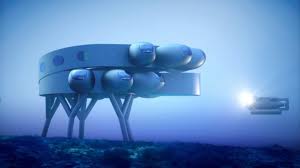
Breaking News
 Escalation of Force: How to Choose the Appropriate Response to Potential Violence
Escalation of Force: How to Choose the Appropriate Response to Potential Violence
 Epstein's Island And The Gateway To The Psychology Of Evil
Epstein's Island And The Gateway To The Psychology Of Evil
 The Epstein Emails Reveal Shadow 9/11 Commission – Exclusive Report!
The Epstein Emails Reveal Shadow 9/11 Commission – Exclusive Report!
 UPDATE: Reps. Massie & Mace Head to DOJ To View Unredacted Epstein Files
UPDATE: Reps. Massie & Mace Head to DOJ To View Unredacted Epstein Files
Top Tech News
 SpaceX Authorized to Increase High Speed Internet Download Speeds 5X Through 2026
SpaceX Authorized to Increase High Speed Internet Download Speeds 5X Through 2026
 Space AI is the Key to the Technological Singularity
Space AI is the Key to the Technological Singularity
 Velocitor X-1 eVTOL could be beating the traffic in just a year
Velocitor X-1 eVTOL could be beating the traffic in just a year
 Starlink smasher? China claims world's best high-powered microwave weapon
Starlink smasher? China claims world's best high-powered microwave weapon
 Wood scraps turn 'useless' desert sand into concrete
Wood scraps turn 'useless' desert sand into concrete
 Let's Do a Detailed Review of Zorin -- Is This Good for Ex-Windows Users?
Let's Do a Detailed Review of Zorin -- Is This Good for Ex-Windows Users?
 The World's First Sodium-Ion Battery EV Is A Winter Range Monster
The World's First Sodium-Ion Battery EV Is A Winter Range Monster
 China's CATL 5C Battery Breakthrough will Make Most Combustion Engine Vehicles OBSOLETE
China's CATL 5C Battery Breakthrough will Make Most Combustion Engine Vehicles OBSOLETE
 Study Shows Vaporizing E-Waste Makes it Easy to Recover Precious Metals at 13-Times Lower Costs
Study Shows Vaporizing E-Waste Makes it Easy to Recover Precious Metals at 13-Times Lower Costs
See the $135 million underwater lab designed by Fabien Cousteau and Yves Béhar

Sixty feet. It doesn't sound like much. But under the weight of water, that short distance is enough to triple the pressure of our normal atmosphere. It's about as far below the surface as humans can live, a strange, isolated place where voice pitch goes up, cuts heal faster, rashes spread with abandon, and batteries deplete more quickly. Which is why Fabien Cousteau, ocean researcher and grandson of Jaques Cousteau, likens the challenge of building an underwater lab to crafting the International Space Station (ISS).
And that's just what he wants to build. An underwater ISS. Called Proteus, Cousteau has been fundraising an unprecedented lab, where researchers can come from across the globe to study the ocean for weeks or months at a time. The price tag? $135 million.

 Smart dust technology...
Smart dust technology...

